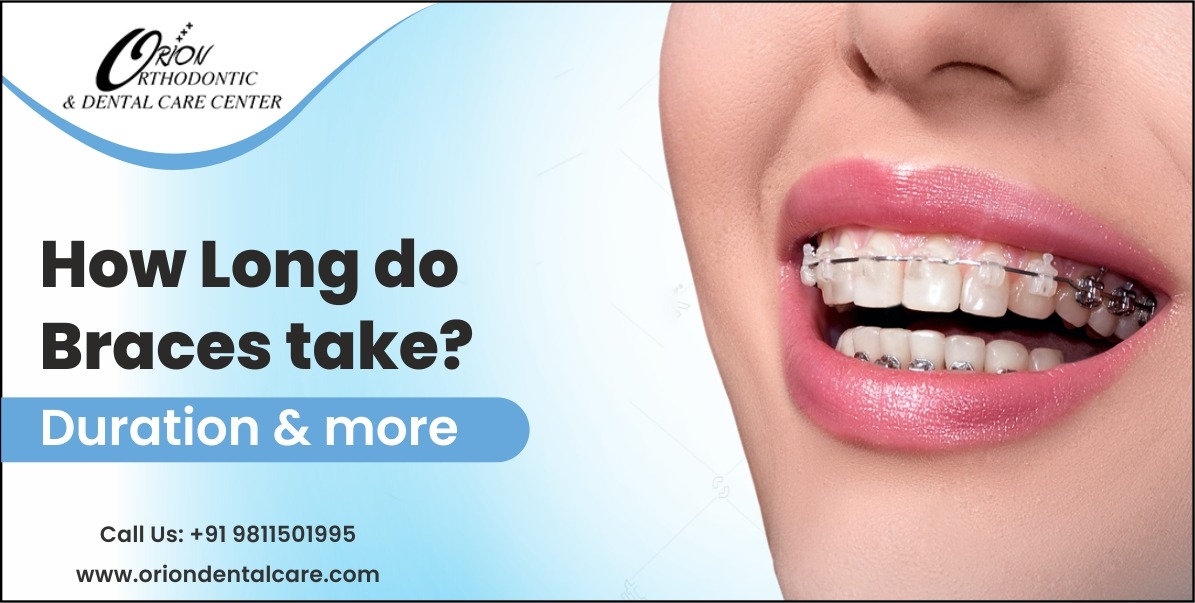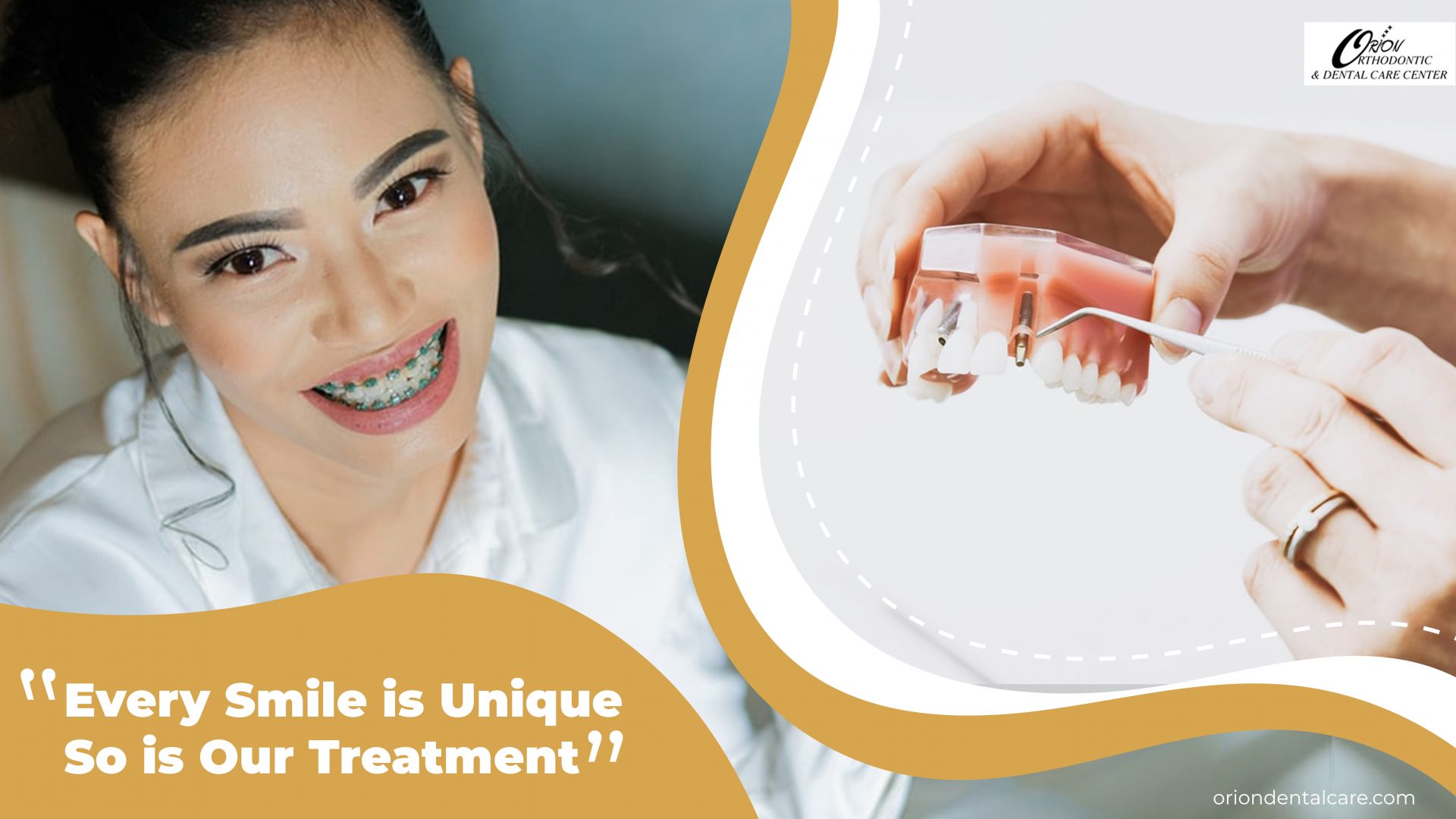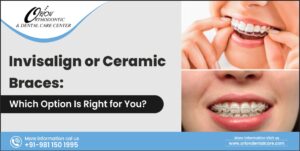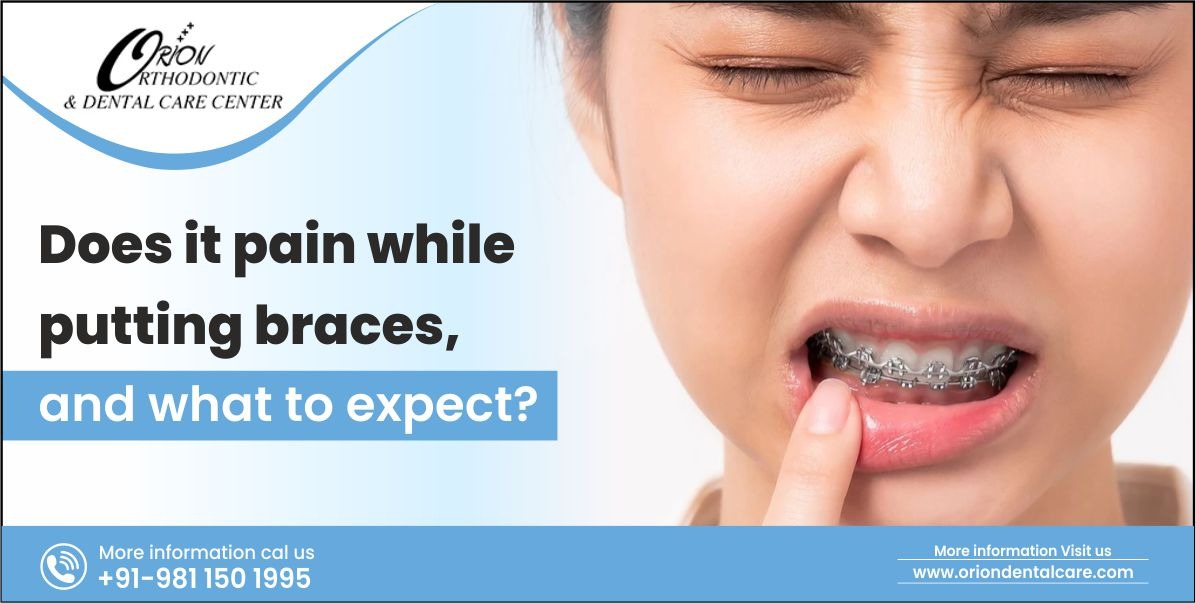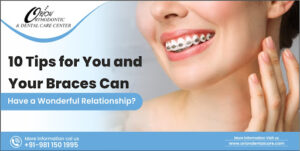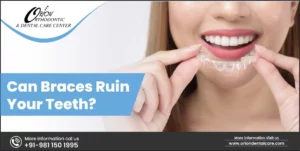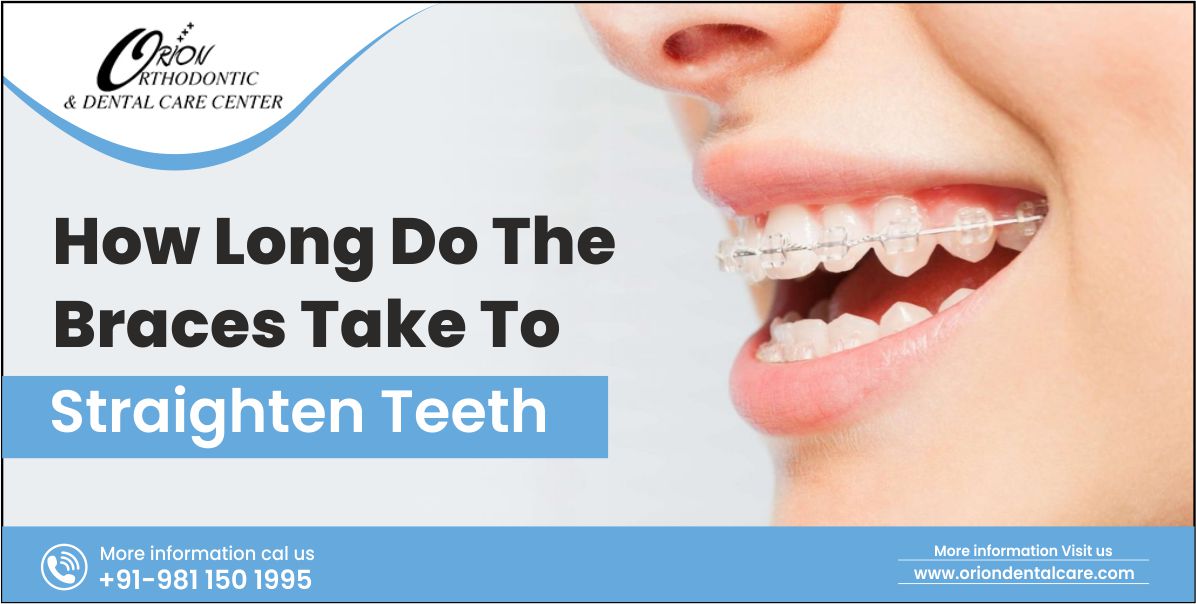If you are planning to get braces to straighten your teeth, it’s very obvious to have hundreds of doubts in your mind. The first and foremost is, how long will the braces treatment last? That way, you will know how much time commitment you will need, how many appointments you will have, and most importantly, how long will the braces take to work before you can have that dream smile of yours. This mainly involves wearing braces for a considerable long time, which varies based on your treatment needs, types of braces or aligners, and your behavior towards the treatment. Meticulously follow your orthodontist’s advice and maintain healthy oral habits to maximize the effectiveness of your orthodontic treatment and minimize the time period.
We, through this article, will walk you through the basics of how the orthodontic treatment works, how long the braces take, and tips to minimize this time and speed up your results.
Feel free to skip ahead if one topic catches your eye:
Types of braces
There are different types of braces:
- Traditional metal braces: These are the most common and well-known braces made of metal brackets and wires.
- Ceramic Braces: Similar to metal braces, but use tooth-colored or clear brackets for a more discreet appearance.
- Lingual Braces: These braces are placed on the inside of your teeth, making them less noticeable.
-
Clear Aligners: A series of clear, removable aligners, such as Invisalign, gradually align teeth without the need for hard brackets or wires.
What are the benefits of braces?
Braces offer benefits such as straightening the crooked teeth, improving bite alignment, improving oral health, and increasing confidence through a more attractive smile.
Removing Teeth Braces Side-effects
Removal of orthotics usually has minimal side effects, including:
- Sensitivity: Temporary tooth and gum sensitivity is common after removing orthodontic appliances.
- Discomfort: You may experience pressure or discomfort as your teeth adjust to their new position.
- Retainers: Retainers are often included to maintain the new alignment of your teeth and may initially cause some discomfort or change in your voice when worn.
These side effects are usually temporary and are part of the adjustment process as the teeth move into the correct position.
When should I talk with a doctor or dentist?
Consult your doctor or dentist if you have any of the following concerns about your oral health: For example: If you have a toothache, gum problems, tooth sensitivity, changes in your mouth, or are considering dental treatment such as braces, implants, or oral surgery.
Regular dental checkups are also important for prevention. If you have specific symptoms or questions, we recommend that you consult your doctor for advice and appropriate treatment.
How Do Braces Work?
It is essential to understand how the dental braces work before you know the time they will be worn. Braces work by slowly and gradually moving the teeth and surrounding structures in a required direction and position in a planned and controlled manner. Orthodontic procedures require very careful manipulation of force which guides the teeth’ movement in a predictable pattern. This results in changes in teeth position, bone, and ligaments in your mouth, which need to be made steadily and not suddenly, as too much pressure can cause harm to the teeth, bone, and gums. There are different types of dental braces, such as metal, lingual, invisible, self-ligating, clear aligner trays, etc., that have different components but work on this same principle.
- Once the braces or aligners are fitted onto your teeth, you will need to regularly follow up with your orthodontist after a few weeks for the assessment to know if your treatment is working in the right direction and accordingly tightening of the braces, or changing of trays (in case of in aligners) will be done.
- This process will continue till the end of the treatment.
- After completing your treatment, you will need to wear retainers to maintain the movement thus made through the treatment.
How long do braces take?
As soon as you start wearing your braces, they pull your teeth and other structures in the right direction. The average time required for completion of your orthodontic treatment ranges from 6 months to 18 months but is different for each individual and the time frame may increase in very severe malignment cases. This depends on several factors:
- The severity of your misalignment issue: Depending upon how severe your dental malalignment problem is, your orthodontic treatment time will vary accordingly.
- The type of teeth braces used: various types of orthodontic braces may require a different amount of time to correct your problems.
- Age: At what age you are getting the braces greatly impacts the time taken for the treatment. Misalignment issues treated in children and teens usually take a much shorter time than the same treatment in adults. The bones become denser and more difficult to move as age progresses than soft and porous bones in children.
- If other treatment modalities or devices are required: Sometimes, for a successful orthodontic treatment, other treatment modalities like the creation of space or jaw alignment are also needed, and other procedures and devices are used along with braces like tooth extractions spacers, headgear, rubber bands, etc. These significantly alter the time of treatment completion.
- Your adherence to doctor’s instructions: Depending on how meticulously you follow your orthodontist’s instructions, maintain oral hygiene by properly brushing and flossing, follow diet instructions, and regularly attend follow-up visits will significantly affect the treatment time. The better you follow all instructions, the fewer chances of tooth decay or wire breakage, and hence quicker the results will be.
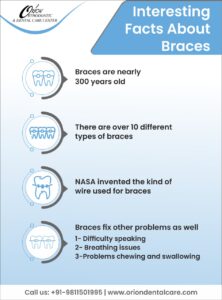 Can I Get Results Faster?
Can I Get Results Faster?You can follow these tips to minimize your time for the completion of your treatment:
Always follow your orthodontist’s instructions properly.
- Be careful about what you eat:
- Avoid carbonated drinks and sodas, which can damage your teeth.
- Stay away from sugary and sticky foods like gums, caramels, candies, etc. They will stick on the teeth braces or brackets, increasing the risk of tooth decay and preventing them from working well.
- Do not bite on hard foods like apples, hard candies, raw vegetables, chips, popcorn, etc. Always break them into small pieces before you eat. This will avoid the breaking of wires and save time for their repair.
- Do not bite or chew on anything other than food like chewing on pencils, biting nails, etc., to avoid damaging your wires.
- Take very good care of your braces:
- Proper brushing, flossing, and rinsing to keep your teeth and mouth clean will prevent plaque build-up between teeth and gums. This will allow the braces to work properly, thus enabling faster tooth movement for quicker results.
- Never try to fix broken teeth braces yourself, but visit your orthodontist immediately.
- Always follow your doctor’s instructions religiously:
- Like wearing bands and maintaining oral hygiene and regular follow-ups, etc. This will help to achieve your results quickly.
FAQs
Is it ever too late to have orthodontic treatment?
It's never too late for orthodontic treatment. The problems of all ages can be satisfied with it.
Do braces hurt?
Braces can initially cause discomfort and pain, but they are usually manageable and reduced over time.
How long do braces take to close a gap?
Small gap closure may take around 3-4 months while correction involving generalized space reduction or bite correction will take longer, about 1-2 years. The entire alignment of all your teeth will need to be balanced. In case any gum tissue is present between, two teeth, then that will need to be removed to sustain the gap closure.
Why do braces take so long?
The teeth are attached to the gums and jaw bone. Therefore, along with the underlying structures, they have to be moved slowly and gradually with a controlled pressure to achieve desirable results. Too much pressure for too fast movement may be very harmful and cause injury and damage to the teeth and jaw bone.
Are the results of overbite treatment with braces permanent?
Although the results of overbite treatment with orthodontic appliances are permanent, long-term success depends on wearing the retainer as directed by the orthodontist.
Takeaway
Visit Orion Dental Care, the best dental clinic in Delhi NCR. Here, you will be assured of getting personalized solutions for all your dental needs. Homed by the most qualified and experienced dentists and using the latest state –of- art technology, you will receive a high standard of quality care and the best treatments with outstanding results at an affordable cost.

